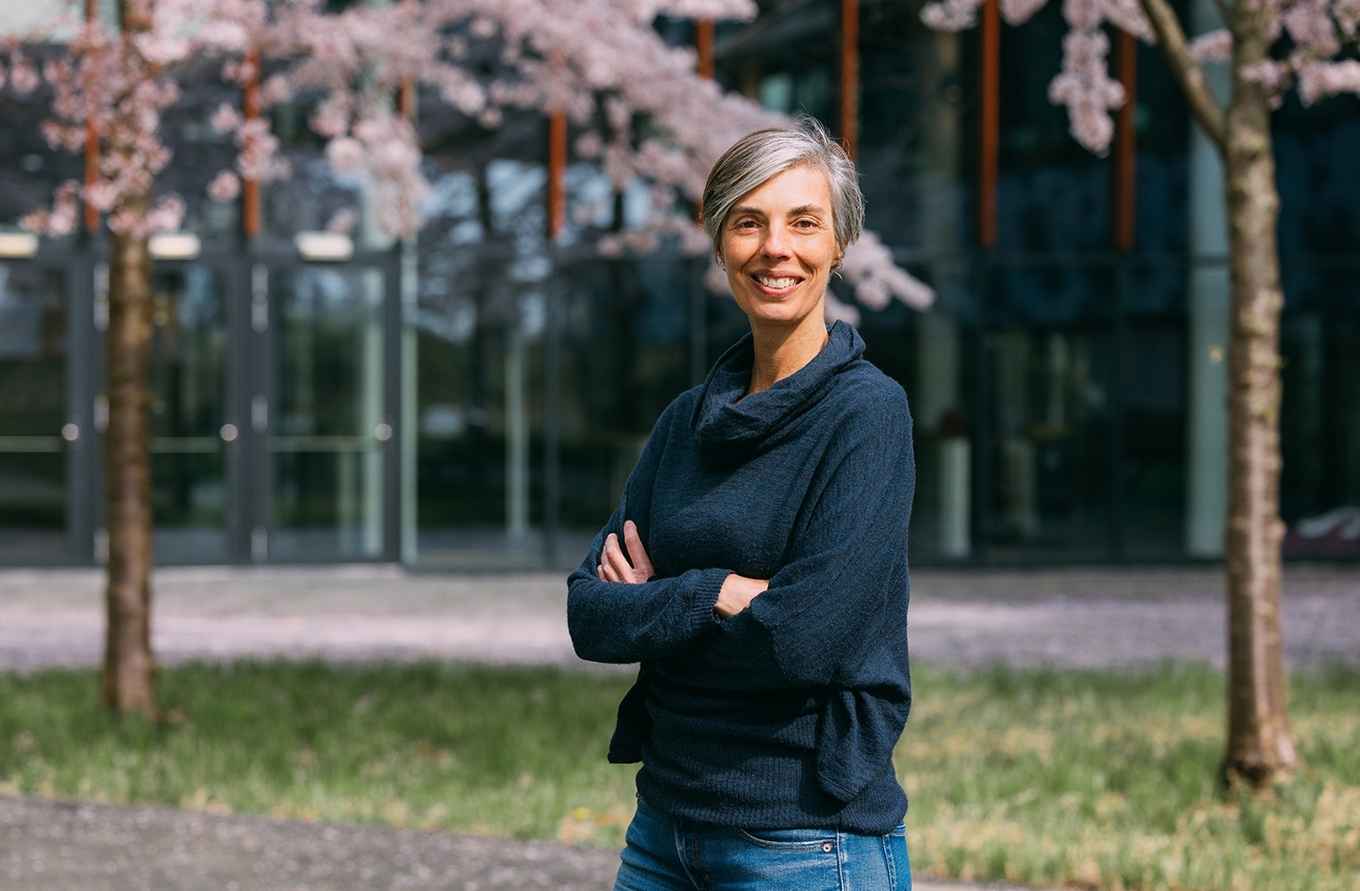Raquel Fernández appointed professor of Computational Linguistics and Dialogue Systems
28 March 2022

Fernández’ main area of expertise is to study complex aspects of human language use and see how these can be translated into the digital dialogue models that are for instance used by chatbots and artificial personal assistants. With this, the research of her group takes place at the interface of computational linguistics, cognitive modeling and artificial intelligence.
User adaptation
The field of dialogue systems has made a lot of progress during the past two decades. Many websites now for instance host customer service chatbots, and interacting with them already feels a lot more ‘natural’ and is less frustrating for the consumer than ten or even five years ago. Still, there is room for improvement. One of the current fundamental challenges Fernández is working on is user adaptation. When we as humans interact with another human, we can very quickly adapt to the person we are talking with. If, for instance, we notice that someone is not a native speaker or if the person has a certain knowledge level about a topic, we immediately adapt our conversation accordingly. But for computers, this is still very hard to do.
A related problem is that at the moment chatbots and conversational agents are bad at storing and thus ‘remembering’ past dialogues and previously perceived characteristics of users. We as humans tend to remember the characteristics of a person we have spoken to before and will adapt accordingly when we speak to the same person again. But chatbots will, in a follow-up conversation, fall back to the basic rules they’ve learned through machine learning and start off exactly the same as they did the first time around.
Beyond language
Another research line Fernández and her group are working on is how to incorporate extra-linguistic aspects in the dialogue models, for instance by combining natural language processing with computer vision. Thus far, computers have learned how to mimic human speech based solely on a linguistic approach; current dialogue models are usually trained on huge amounts of texts using machine learning techniques. Fernández believes that in order for computers to interact more naturally with us, they need to truly understand language and be able to relate language expressions to what they mean in the world. So, she and her team are trying to figure out how to incorporate aspects such as visual information or social features of conversations within dialogue systems.
Applications
Fernández’ work has a strong fundamental focus. Her research always starts with studying human-human dialogue, seeing what can be learned from that and how it can be translated into computer programs. This type of fundamental research has great potential for applications, for example in the domains of education and commerce. Fernández plans to explore this applied aspect of her work in the coming years, including through industrial collaboration.
Career
Fernández has an MSc in Cognitive Science and Language from the Universitat Autònoma de Barcelona and obtained her PhD in Computational Linguistics at King’s College London in 2006. She then worked as a Marie Curie Research Fellow at the University of Potsdam and as a postdoctoral researcher at Stanford University. In late 2008 she obtained a VENI award from the Dutch Research Council (NWO) and joined the University of Amsterdam. She became Assistant Professor at the UvA’s Institute for Logic, Language and Computation in 2011 and was promoted to Associate Professor in 2016.
Among her more recent large awards and grants are an NWO VIDI grant (with a value of 800.000 Euro) in 2015 and an ERC Consolidator Grant (value: 2 million Euro) in 2018.
Teaching activities
In de past few years, due to being the principal investigator of large research projects, Fernández has focused more on research than on teaching. At the moment she only teaches the Master’s course Computational Dialogue Modelling, but in the past she has taught courses in the Bachelor’s and Master’s in Artificial Intelligence. In addition, she has been a member of the educational boards of the MSc Logic and the BSc AI and from 2011 to 2016 she was the coordinator of the Honours program of the three Bachelors on Information Sciences (Artificial Intelligence, Computer Science, Information Studies) at the UvA’s Faculty of Science.